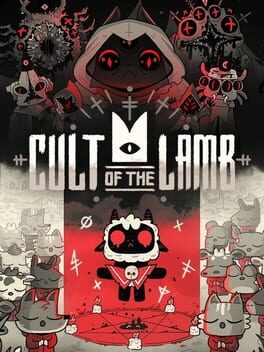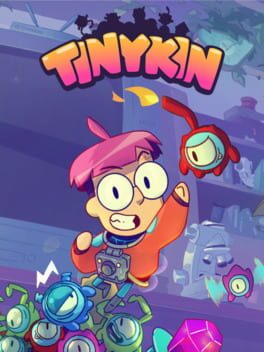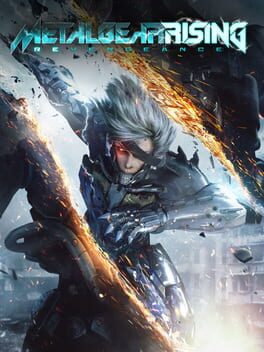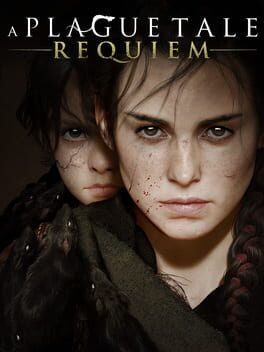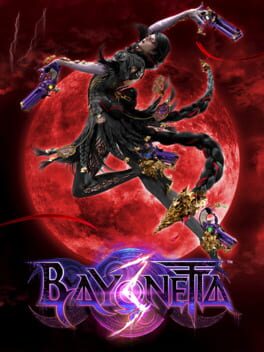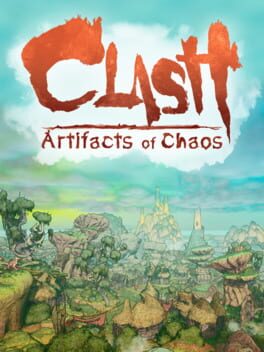2022
Well, there went my weekend. Cult of the Lamb has one of the most addictive gameplay loops I have encountered in a while and this could have been devastating if presented in an endless time sink common in the genres blended here. Instead, this game feels perfectly trimmed and polished to respect the player's time. The game oozes style in the whole presentation, from all the brilliant UI work to a banging soundtrack. And the gameplay is there to back it up, nailing pretty much everything it is going for. Honestly, I can't find many faults with this game, it is an incredible achievement only minorly weighed down by some of the tedium around the base building aspect and even that is stretching it.
2022
Not a perfect game, but I still adore everything about it. Beautiful and terrifying, the pinnacle of the Sam Barlow FMV detective genre, leaving the shackles of unlocking a puzzle box bit by bit with notebook at the side and instead diving fully into the madness of cinematography and filmmaking, while also crafting a masterclass in narrative design in the process.
2022
I just can't. After ten hours I don't feel enough of a drive to keep playing. For me the Xenoblade games are bad examples of maximalist design at this point. Creating quality not by elegant subtraction but by addition of more and more systems and dimensions of complexity to the point of legitimately feeling like parody of itself to me.
I could stand Xenoblade 3 for longer than the first one due to an interesting story hook and early development, but my god the sheer spam of new systems, menues, and mechanics truly made my head hurt, killing any drive to play further - hearing how much more is to come, hailed as a positive aspect. This made me realize that the series is definitively not for me, despite my best efforts which greatly disappoints me because of the excitement seemingly everyone else has for the franchise and my absolute adoration of Xenogears and the hope of some DNA of that transfering over.
The baseline combat is so clunky and uninteresting to me that I can't stomach pushing through that for 90 more hours, not even starting on the incredibly annoying line repetitions and dull environments fully covered in ever respawning loot and enemies. I read that that this makes the game feel alive and dynamic while it did the complete opposite for me feeling like a wasteland entirely populated by procedurally generated content. As a level designer the terrain navigation truly shocked me with how clunky and unpolished it is. You constantly run into slopes you are expected to awkwardly jump your way up while other ledges are not accessible to you while being only slightly above your jump height, adding to the feeling of procedural generation, lacking the affordances and clean communication of intentional level design.
This is all pretty much rambling about how this game just isn't for me in the end, recognizing that it's obviously not a bad game, it's just rare that a game in a genre I usually really enjoy so completely goes against anything I value in games and I am envious of everyone able to fall in love with the games in this series, I wish I was one of them.
I could stand Xenoblade 3 for longer than the first one due to an interesting story hook and early development, but my god the sheer spam of new systems, menues, and mechanics truly made my head hurt, killing any drive to play further - hearing how much more is to come, hailed as a positive aspect. This made me realize that the series is definitively not for me, despite my best efforts which greatly disappoints me because of the excitement seemingly everyone else has for the franchise and my absolute adoration of Xenogears and the hope of some DNA of that transfering over.
The baseline combat is so clunky and uninteresting to me that I can't stomach pushing through that for 90 more hours, not even starting on the incredibly annoying line repetitions and dull environments fully covered in ever respawning loot and enemies. I read that that this makes the game feel alive and dynamic while it did the complete opposite for me feeling like a wasteland entirely populated by procedurally generated content. As a level designer the terrain navigation truly shocked me with how clunky and unpolished it is. You constantly run into slopes you are expected to awkwardly jump your way up while other ledges are not accessible to you while being only slightly above your jump height, adding to the feeling of procedural generation, lacking the affordances and clean communication of intentional level design.
This is all pretty much rambling about how this game just isn't for me in the end, recognizing that it's obviously not a bad game, it's just rare that a game in a genre I usually really enjoy so completely goes against anything I value in games and I am envious of everyone able to fall in love with the games in this series, I wish I was one of them.
Still just as exhilarating as it was when I first played it as a teenager on release. With this replay I could finally remedy a big regret of my gaming career: Actually beating the final boss and finishing the game on hard difficulty, which I just couldn't do in 2013, as the difficulty spike was just too brutal.
In the years after its release Rising became a cult classic and with good reason - the game is not only a phenomenal action game with some of the best uses of music in combat but is also infinitely quotable through the narrative in between that doesn't overstay its welcome.
There are definitely some rough edges where the game pulls you away from what the fun part is by introducing various stealth sections to somehow prove that it is a Metal Gear game, I guess. And the weapons and items you get are really not that interesting at the best and annoyingly clunky and useless at the worst, providing some unnecessary fat in an otherwise remarkably lean experience. At the end I don't feel like faulting the game for anything, though. It is so full of character and charm, that it just gets away with it, cementing itself as one of my favorite games of all time.
In the years after its release Rising became a cult classic and with good reason - the game is not only a phenomenal action game with some of the best uses of music in combat but is also infinitely quotable through the narrative in between that doesn't overstay its welcome.
There are definitely some rough edges where the game pulls you away from what the fun part is by introducing various stealth sections to somehow prove that it is a Metal Gear game, I guess. And the weapons and items you get are really not that interesting at the best and annoyingly clunky and useless at the worst, providing some unnecessary fat in an otherwise remarkably lean experience. At the end I don't feel like faulting the game for anything, though. It is so full of character and charm, that it just gets away with it, cementing itself as one of my favorite games of all time.
Requiem plays it safe as far as sequels go and continues right where the first game left of. Even if it features more sprawling and detailed environments, it is the type of sequel where I won't remember in a years time what was part of the first game and what was the second game. This isn't a bad thing at all, ultimately I also enjoyed it about equally as Innocence, even if it has nice improvements in combat and character variety.
Where I would have wished for more refinement are the puzzles and some of the rat sections. It happened multiple times that a puzzle or general progression hinged on me noticing an interaction circle somewhere or not missing a crucial piece of dialog that is not repeated, leading to me banging my head against the wall in trial-and-error, not seeing the specific solution to a problem the game wants me to see to progress.
The rats are the bread and butter of A Plague Tale and offer a great twist on stealth mechanics. The tech is honestly impressive, but unfortunately not waterproof. The organic nature of the rat system often led to infuriating frustration where some rogue rats would still be on a cleared path, killing Amecia, you being centimeters away from a light source still dying trying to make one step forward or rats being on a path they are not supposed to be due to some mechanics I won't spoil, leading to the need for wasting a fire pot to clear a tiny patch of rats, alerting all the enemies. These were minor frustrations but were what ultimately held me back from enjoying it more than Innocence.
In the end though, A Plague Tale is incredibly easy to recommend, which hasn't changed with Requiem, offering a tight narrative with impressive set-pieces and digestable stealth gameplay, even I, a person with very very limited patience for any stealth in games, could arrange myself with. It's the little AA sibling of Uncharted and The Last of Us and is just as enjoyable, even if obviously not as refined.
Where I would have wished for more refinement are the puzzles and some of the rat sections. It happened multiple times that a puzzle or general progression hinged on me noticing an interaction circle somewhere or not missing a crucial piece of dialog that is not repeated, leading to me banging my head against the wall in trial-and-error, not seeing the specific solution to a problem the game wants me to see to progress.
The rats are the bread and butter of A Plague Tale and offer a great twist on stealth mechanics. The tech is honestly impressive, but unfortunately not waterproof. The organic nature of the rat system often led to infuriating frustration where some rogue rats would still be on a cleared path, killing Amecia, you being centimeters away from a light source still dying trying to make one step forward or rats being on a path they are not supposed to be due to some mechanics I won't spoil, leading to the need for wasting a fire pot to clear a tiny patch of rats, alerting all the enemies. These were minor frustrations but were what ultimately held me back from enjoying it more than Innocence.
In the end though, A Plague Tale is incredibly easy to recommend, which hasn't changed with Requiem, offering a tight narrative with impressive set-pieces and digestable stealth gameplay, even I, a person with very very limited patience for any stealth in games, could arrange myself with. It's the little AA sibling of Uncharted and The Last of Us and is just as enjoyable, even if obviously not as refined.
2022
Can't wait for multiverse narratives to die in a fire.
Bayonetta 3 is a good action game but a huge step down for the Bayonetta franchise and perhaps the biggest disappointment I have ever felt in a game. Not only is the story an incoherent, embarrassing mess (not that the other two had a high bar to overcome), but unfortunately the gameplay is completely bogged down with the new focus on summoning gigantic monsters in every battle, which creates a clusterfuck of visual clutter and takes the fun and speed out of the otherwise flawless combat system with great new weapon additions.
Platinum really had to sign a monkey's paw deal with Nintendo it seems. On the one hand the franchise was saved, but on the other hand it was confined to the shackles of technological jail that are Nintendo's consoles, meaning that Bayonetta 3 might actually look and feel worse than Bayonetta 1 on the 360 did, which is such a bummer.
I am not hopeful at all for the future of Bayonetta, unfortunately. The story and character decisions did its part, certainly, but most importantly it feels like I have lost the confidence in the belief that Platinum has a coherent vision for the franchise and knows what the strengths are, because Bayonetta 3 certainly did not play to them.
Bayonetta 3 is a good action game but a huge step down for the Bayonetta franchise and perhaps the biggest disappointment I have ever felt in a game. Not only is the story an incoherent, embarrassing mess (not that the other two had a high bar to overcome), but unfortunately the gameplay is completely bogged down with the new focus on summoning gigantic monsters in every battle, which creates a clusterfuck of visual clutter and takes the fun and speed out of the otherwise flawless combat system with great new weapon additions.
Platinum really had to sign a monkey's paw deal with Nintendo it seems. On the one hand the franchise was saved, but on the other hand it was confined to the shackles of technological jail that are Nintendo's consoles, meaning that Bayonetta 3 might actually look and feel worse than Bayonetta 1 on the 360 did, which is such a bummer.
I am not hopeful at all for the future of Bayonetta, unfortunately. The story and character decisions did its part, certainly, but most importantly it feels like I have lost the confidence in the belief that Platinum has a coherent vision for the franchise and knows what the strengths are, because Bayonetta 3 certainly did not play to them.
I fell absolutely head over heels in love with this game from the moment I booted up the demo for the first time. It is weird, ugly, gorgeous, clunky, satisfying and ten other adjectives that will contradict each other, because Clash revels in that contradiction and not bending to anything but the unique rule(s) of this world.
I was being reminded of the original Nier a lot with this game, not only with soundtrack similarities, which certainly play its part, both being absolutely unique and outstandingly beautiful but also the general mix of riveting storytelling and characters with at times rough execution that will undoubtely scare off a lot of players reflected in the low critics scores. Also Godhand comes to mind, filling out the gameplay side of this analogy. All of these facts also make it absolutely ripe to simmer and manifest as a hidden gem and cult classic guaranteed to become someones favorite game of all time.
All the criticism out there of this game is probably very valid, but this is this kind of game that when it clicks, it fucking clicks, which is what happened for me and I love this game to pieces without any reservation.
I was being reminded of the original Nier a lot with this game, not only with soundtrack similarities, which certainly play its part, both being absolutely unique and outstandingly beautiful but also the general mix of riveting storytelling and characters with at times rough execution that will undoubtely scare off a lot of players reflected in the low critics scores. Also Godhand comes to mind, filling out the gameplay side of this analogy. All of these facts also make it absolutely ripe to simmer and manifest as a hidden gem and cult classic guaranteed to become someones favorite game of all time.
All the criticism out there of this game is probably very valid, but this is this kind of game that when it clicks, it fucking clicks, which is what happened for me and I love this game to pieces without any reservation.
2022
One of the most fundamentally satisfying combinations of gameplay loops make this feel so effortlessly solid just from reading the basic description that you hunt fish in a tiny roguelite loop during the day to sell them in your sushi restaurant at night. That is a perfect premise already. The presentation, music and steady supply of new systems, upgrades and tons of little gameplay twists and flourishes then elevate this to greatness and most remarkably keep a consistent fresh pacing over the almost 30 hours it unexpectedly took me to complete this, never running out of steam. It struck a similar nerve for me as Cult of the Lamb last year which I was just as hopelessly addicted to, so beware, Dave the Diver will leech your time and you won't even notice it.
2023
I could spend endless more hours in this world, deducing languages and nuances in the relationships between them, such a deeply satisfying experience, enhanced by an enchanting soundtrack and mesmerizing art and architecture blending between cozy and luscious and oppressive and intimidating expertly.
2023
I really liked the game up until it decided to throw in a cursed Sen's Fortress/Blighttown crossover section forcing you to do precision platforming with the awful jumping mechanics of Souls games pre Elden Ring while being shot at from a distance. How could anyone think this was a good idea? Did they think people liked the platforming in Souls games?
